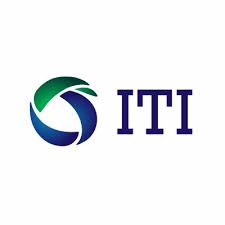healthcare data
See the following -
An Argument for Standardized Reference Terminologies
 As a National Institutes of Health (NIH) article explains, standardized data is ‘crucial for data exchange between health information systems, epidemiological analysis, quality and research, clinical decision support systems, administrative functions.” Terminology is an important part of medicine. In short, it is a clinicians’ extensive healthcare vocabulary, which they use to describe a patients’ conditions and health events. With the onset of EHRs, clinicians are responsible for documenting patient information in EHRs. This is now properly done with standardized reference terminologies and not home-grown ones.
As a National Institutes of Health (NIH) article explains, standardized data is ‘crucial for data exchange between health information systems, epidemiological analysis, quality and research, clinical decision support systems, administrative functions.” Terminology is an important part of medicine. In short, it is a clinicians’ extensive healthcare vocabulary, which they use to describe a patients’ conditions and health events. With the onset of EHRs, clinicians are responsible for documenting patient information in EHRs. This is now properly done with standardized reference terminologies and not home-grown ones.
- Login to post comments
Combining Satisfaction And Healthcare Cost Data
An organization in Virginia has made the most of available federal data and has provided a one-stop-shop for healthcare consumers.
- Login to post comments
Cytta Announces Release of Cytta Connect Open Source Remote Health Monitoring Data Highway
Cytta's open source data highway now connects "Anyone, Anywhere and Anytime" (the A-Cubed Connectivity Standard) and that Cytta's Health & Wellness Connectivity solutions are available to the entire Healthcare industry, including insurers, caregivers and policymakers. Healthcare needs to be flexible, seamless and mobile for patients. Cytta Connect is the only automatic WiFi, cellular and satellite data connectivity solution that achieves this new standard. Read More »
- Login to post comments
DeSalvo Strikes Interoperability Chord At AHIMA Conference
ONC chief Karen DeSalvo, MD, promised an audience of AHIMA members that the government would act "fast into interoperability." She drew applause when she added, "We cannot wait for 10 years to get this done." DeSalvo emphasized that every other industry has already achieved interoperability. Read More »
- Login to post comments
Do Hospitals Want Interoperability?
I’ve had this discussion come up over and over again today in a series of discussions that I’ve had at the NYeC’s Digital Health Conference in NYC. Many people are blaming the EHR vendors for not being interoperable...
- Login to post comments
FHIR And The Future Of Interoperability
There is growing interest in the health care information technology community in an emerging data exchange technology known as FHIR (pronounced “fire”)...
- Login to post comments
Geospatial Intelligence: A Diagnostic Dashboard For A Healthier Nation
When it comes to public health, and identifying the events and behaviors that affect it, agencies charged with protecting the health and welfare of citizens need to leverage every available tool at their disposal to quickly and effectively respond to growing threats. Data mapping is a tool to answer the call...In the case of emergencies, planning and crisis response, open-source information is readily available via the CDC...
- Login to post comments
Halamka's Notes on the December HIT Standards Committee Meeting
The December HIT Standards Committee included a review of the draft Federal Health IT Strategic Plan, recommendations about identity management from the Transport and Security Workgroup, an overview of the Prescription Drug Monitoring Program, and a discussion of upcoming task force work as we all prepare for the publication of the ONC interoperability roadmap and the Meaningful Use Stage 3 Notice of Proposed Rulemaking.
- Login to post comments
Hospitals Paying the Price of Not Investing in IT Security
 The fact is, most of healthcare simply doesn’t spend enough on data security. In a study conducted by HIMSS Analytics and Symantec that polled 115 IT and security professionals in hospitals with more than 100 beds, more than half (52 percent) said their organization dedicated between zero and 3 percent of the IT budget to security. Just 28 percent said they spent between 3 and 6 percent of IT budget on security. “All of this makes healthcare organizations rich targets for cybercriminals,” reads the study summary.
The fact is, most of healthcare simply doesn’t spend enough on data security. In a study conducted by HIMSS Analytics and Symantec that polled 115 IT and security professionals in hospitals with more than 100 beds, more than half (52 percent) said their organization dedicated between zero and 3 percent of the IT budget to security. Just 28 percent said they spent between 3 and 6 percent of IT budget on security. “All of this makes healthcare organizations rich targets for cybercriminals,” reads the study summary.
- Login to post comments
Interoperability among Connected Medical Devices Can Potentially Transform Healthcare
 Connected health infrastructure is emerging as a binding agent for diverse devices and workflows, aiding diagnosis, monitoring and prevention in the healthcare industry. For such an infrastructure to be efficient, stakeholders must first ensure that interoperability and connectivity standards are in place. New analysis from Frost & Sullivan, Healthcare and Medical Device Connectivity and Interoperability, finds that the adoption of connected healthcare infrastructure is not uniform across the world. This is primarily due to the lack of a holistic digital healthcare strategy that focuses on integrated care models.
Connected health infrastructure is emerging as a binding agent for diverse devices and workflows, aiding diagnosis, monitoring and prevention in the healthcare industry. For such an infrastructure to be efficient, stakeholders must first ensure that interoperability and connectivity standards are in place. New analysis from Frost & Sullivan, Healthcare and Medical Device Connectivity and Interoperability, finds that the adoption of connected healthcare infrastructure is not uniform across the world. This is primarily due to the lack of a holistic digital healthcare strategy that focuses on integrated care models.
Microsoft, Amazon, Google, IBM, Oracle, and Salesforce Issue Joint Statement Making Commitment to Open Source Healthcare Interoperability
 Interoperability is an overlapping set of technical and policy challenges, from data access to common data models to information exchange to workflow integration – and these challenges often pose a barrier to healthcare innovation. Microsoft has been engaged for many years on developing best practices for interoperability across industries. Today, as health IT community leaders get together at the CMS Blue Button 2.0 Developer Conference here in Washington, DC, we’re pleased to announce that Microsoft has joined with Amazon, Google, IBM, Oracle, and Salesforce in support of healthcare interoperability...
Interoperability is an overlapping set of technical and policy challenges, from data access to common data models to information exchange to workflow integration – and these challenges often pose a barrier to healthcare innovation. Microsoft has been engaged for many years on developing best practices for interoperability across industries. Today, as health IT community leaders get together at the CMS Blue Button 2.0 Developer Conference here in Washington, DC, we’re pleased to announce that Microsoft has joined with Amazon, Google, IBM, Oracle, and Salesforce in support of healthcare interoperability...
- Login to post comments
National Medical Device Registries Task Force Recommends Partnerships to Build National System for Medical Devices
The federal government and stakeholders interested in device innovation and evaluation should support the creation of a comprehensive partnership on medical devices to monitor the products' performance after they become commercially available, a Food and Drug Administration-initiated and independent national group of experts is recommending in a report. The recommendations call for a master network of data in each clinical area where devices are used. Information on medical devices does exist — in registries, electronic health records (EHR) and claims data — but the disparate locations make it difficult for regulators, doctors and patients to understand and use it efficiently. Yet millions of patients undergo surgery each year and require some type of medical device during the procedure.
- Login to post comments
Patients Need To Have Control Over Their Own Information If Care.data Is To Work
The consent process for opting out of care.data should be clear and transparent, and patients should be the first to have access...The case the government makes for care.data, that allowing medical researchers access to patient data will result in new cures, is a hard one to oppose. If the case were so simple then most people, including me, would welcome it.
- Login to post comments
Singapore’s Pragmatic Approach to Technology Disruptions
Conceived in 2014, Singapore’s National Health IT Masterplan is coming to fruition, with key projects such as the National Electronic Health Record (NEHR) system already in place. This was revealed by Singapore’s health minister Gan Kim Yong earlier this week at the opening of the National Health IT Summit, a gathering of top medical and IT practitioners in the city-state...
- Login to post comments
Tech Industry Pledges to Improve Healthcare Through Open Source Health IT
 Today, ITI President and CEO Dean Garfield and several ITI member companies participated in the Blue Button 2.0 Developer Conference at the White House where they announced their commitment to removing barriers for the adoption of technologies for healthcare interoperability, particularly those that are enabled through the cloud and AI...“Today’s announcement will be a catalyst to creating better health outcomes for patients at a lower cost,” said ITI president and CEO Dean Garfield. “As transformative technologies like cloud computing and artificial intelligence continue to advance, it is important that we work towards creating partnerships that embrace open standards and interoperability.
Today, ITI President and CEO Dean Garfield and several ITI member companies participated in the Blue Button 2.0 Developer Conference at the White House where they announced their commitment to removing barriers for the adoption of technologies for healthcare interoperability, particularly those that are enabled through the cloud and AI...“Today’s announcement will be a catalyst to creating better health outcomes for patients at a lower cost,” said ITI president and CEO Dean Garfield. “As transformative technologies like cloud computing and artificial intelligence continue to advance, it is important that we work towards creating partnerships that embrace open standards and interoperability.
- Login to post comments